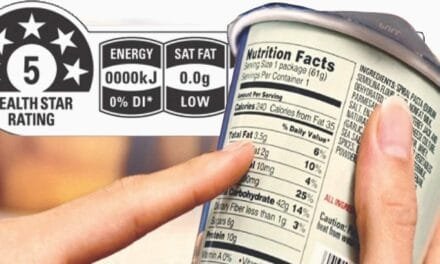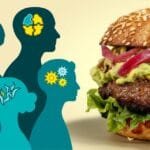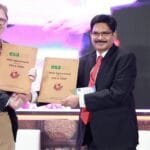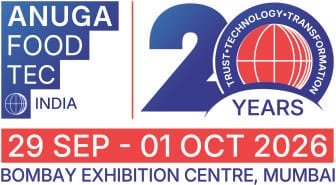Protein quality and supply are crucial factors for global food security, nutrition, and environmental sustainability. New technologies for protein extraction are therefore essential. Scientists are researching protein enrichment and fractionation of agricultural by-products using dry electrostatic separation technology.
Table of Contents
The world’s population is growing. At the same time, resources are becoming scarcer and climate change is advancing. How can a growing population still be adequately fed in times of scarcity? Scientists at the Technical University of Munich (TUM) are participating in the Tribotec project, which is researching novel dry fractionation technology to obtain highly functional proteins from previously underutilised resources.
“Protein quality and supply are critical factors for global food security, nutrition, and the environment. New technologies for protein extraction are therefore essential,” says Professor Petra Först, Professor in the Department of Systems Process Engineering at the TUM School of Life Sciences in Freising–Weihenstephan.
Freising scientists are therefore participating in the “Tribotec” project, led by the German Institute of Food Technologies (DIL), which is researching the protein enrichment and fractionation of agricultural by-products, such as oilseed meals, using dry triboelectrostatic separation technology.
Water and solvent free separation
“Electrostatic separation is a novel, environmentally friendly technology. ,“In this process, air currents are used to swirl ground materials and electrostatically charge them,” explained Dr. Javier Perez Vaquero, a scientist in the TUM’s Department of Process Engineering. These physical forces separate the fine fraction enriched with protein from the coarse fractions enriched with fibre and starch. The result is two separate fractions, one of which has a higher protein content than the initial sample.
The advantages over conventional methods are: water and solvent-free separation, lower energy consumption and operating costs, retention of the original functionality of the protein, and applicability to a wide range of materials. For more on sustainable food technologies, explore how sustainability is revolutionizing the food industry.
Studies with canola and lupine seeds
In their experiments, Dr. Perez Vaquero and his team studied seeds of plants, specifically canola and lupin seeds. The total protein gain ranged from 5% for canola meal to 20% for lupin meal.
Dr. Perez Vaquero states, “Our research has shown that higher masses (kilograms/hour) can be handled than previous studies have found. We can thus achieve mass processing of up to several kg/hour, which is a tenfold increase. Hence, we are one step closer to achieving a protein value high enough to be used in industry.”
“This research opens up enormous potential for the use of previously underutilised alternative protein sources,” exclaims Professor Först. Using this technology, by-products that regularly arise in the food industry, for example sunflower or rapeseed press cake as residues from oil production, can be enriched and further processed in the laboratory or in industry to provide a source of highly functional protein in a diverse range of products including animal and fish feed, and as protein for the production of plant-based meat substitutes. Furthermore, the process also enables the development of completely new vegetable protein sources.
Further information about Tribotec project
The European Commission is pursuing several strategies under the European Green Deal. The aim is to accelerate a transition to a sustainable food system by promoting environmentally friendly and innovative technologies for the agri-food sector.
The Tribotec project is carried out by a research consortium involving partner along the entire food chain: from raw material to product application, led by the German Institute of Food Technologies (DIL), Napiferyn Biotech (NFB), ProLupin (PL), and Mati. The project is financially supported by the European Unit EIT Food.
More About Technical University of Munich (TUM)
The Technical University of Munich (TUM) is one of Europe’s leading research universities, with more than 600 professors, 48,000 students, and 11,000 academic and non-academic staff. Its focus areas are the engineering sciences, natural sciences, life sciences and medicine, combined with economic and social sciences. TUM acts as an entrepreneurial university that promotes talents and creates value for society. In that it profits from having strong partners in science and industry.
It is represented worldwide with the TUM Asia campus in Singapore as well as offices in Beijing, Brussels, Mumbai, San Francisco, and São Paulo. Nobel Prize winners and inventors such as Rudolf Diesel, Carl von Linde, and Rudolf Mößbauer have done research at TUM. In 2006, 2012, and 2019, it won recognition as a German “Excellence University.” In international rankings, TUM consistently ranks among the top universities in Germany.
For more insights into food innovation, check out top technologies transforming food processing.
Photo caption: “Tribo-electrostatic Belt Separator designed and manufactured by ST Equipment & Technology LLC, Needham MA USA https://www.steqtech.com/”

















